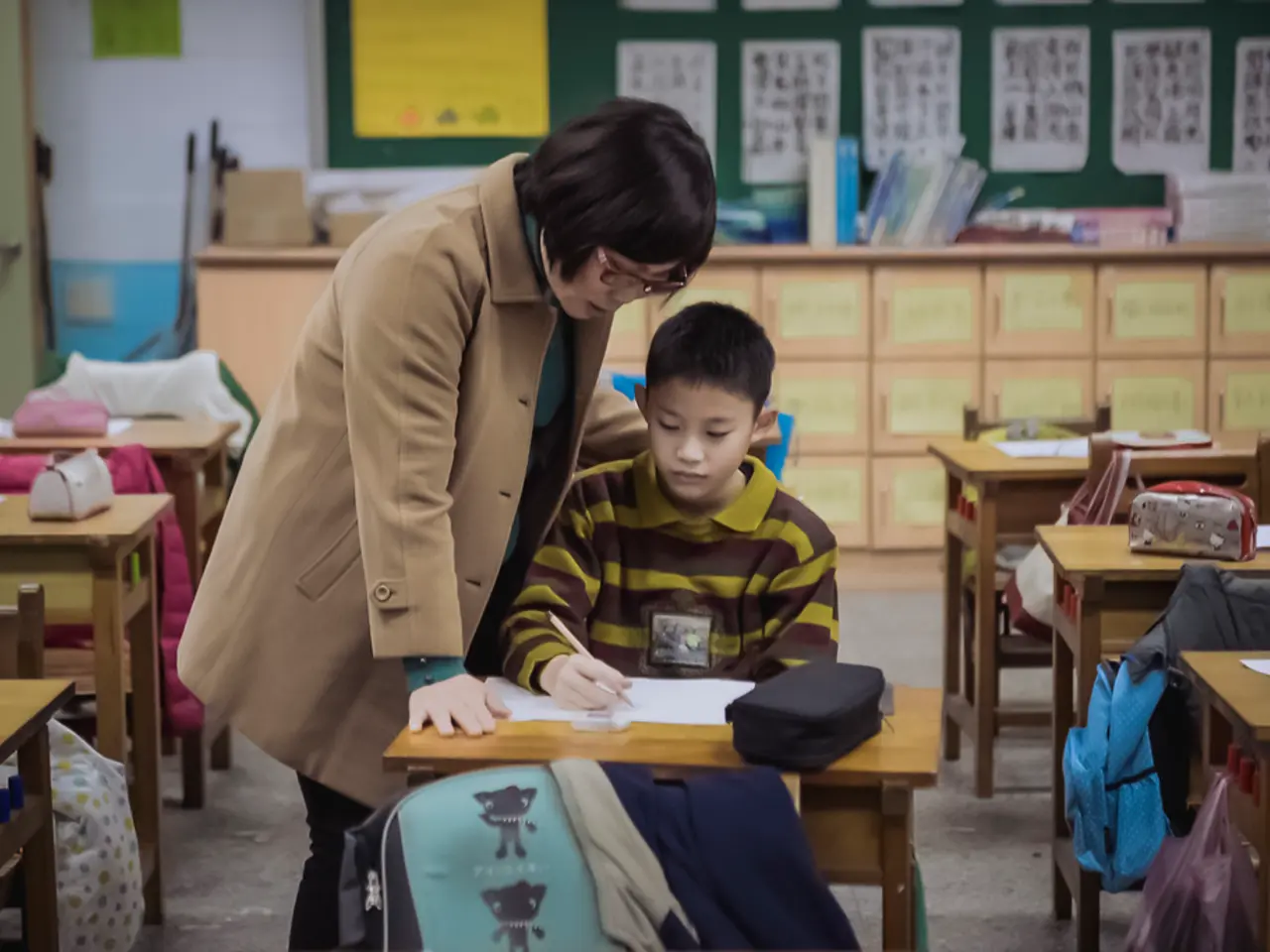Book Explores AI's Role in Education: Insights into AI's Contribution
In the world of education, Alana Winnick, the Educational Technology Director at the Pocantico Hills Central School District in New York, is making waves with her innovative approach to incorporating artificial intelligence (AI) into the classroom.
Winnick, an award-winning edtech expert, has been using AI to streamline lesson planning and promote innovation in education. She refers to the process of selecting and combining AI outputs as "DJing," likening it to the art of blending and mixing music tracks. This approach, she believes, is more fun and engaging than traditional methods, making the process of learning more enjoyable for students.
However, Winnick emphasizes the importance of understanding bias and misinformation in AI before using it in an educational setting. She encourages focusing on the process over the final product when using AI, bypassing concerns about cheating. This approach allows teachers to leverage AI's potential while maintaining the human touch that is essential in education.
One of Winnick's most notable achievements is writing her book, The Generative Age: Artificial Intelligence and the Future of Education, using AI-powered voice-to-speech transcription. The book explores the role of AI in shaping the future of education and provides practical tips for educators looking to integrate AI into their classrooms.
Winnick also encourages the use of AI to help students improve their writing skills. She suggests having students write prompts for AI art, which can help them develop their creativity and critical thinking skills. This approach, she believes, can lead to a more engaging and interactive learning experience.
Teacher expertise is still crucial in this new landscape. While AI can save teachers time and resources, it is not infallible. Teachers must fine-tune lesson plans and correct any mistakes AI might make to ensure the best possible learning experience for their students.
Winnick advocates for a culture that allows teachers to try new things with AI in the classroom. She encourages empowering teachers and students to share their expertise and guide the classroom experience. This approach, she believes, will lead to a more innovative and effective educational environment.
In recognition of her contributions to the field of edtech, Winnick has received several awards, including the Innovative Tech Director Award during the Northeast Regional Leadership Summit and an award from the New Jersey Historical Commission.
With her innovative approach and commitment to responsible AI use, Alana Winnick is leading the way in integrating AI into education, making learning more engaging, efficient, and enjoyable for students and teachers alike.
Read also:
- Antitussives: List of Examples, Functions, Adverse Reactions, and Additional Details
- Asthma Diagnosis: Exploring FeNO Tests and Related Treatments
- protect against SCATTERED SPIDER using Falcon Next-Gen SIEM
- The Interconnected Role of Drones in the Digital Battlefield: Bridging Electronic Warfare, Cyberspace, and Beyond








